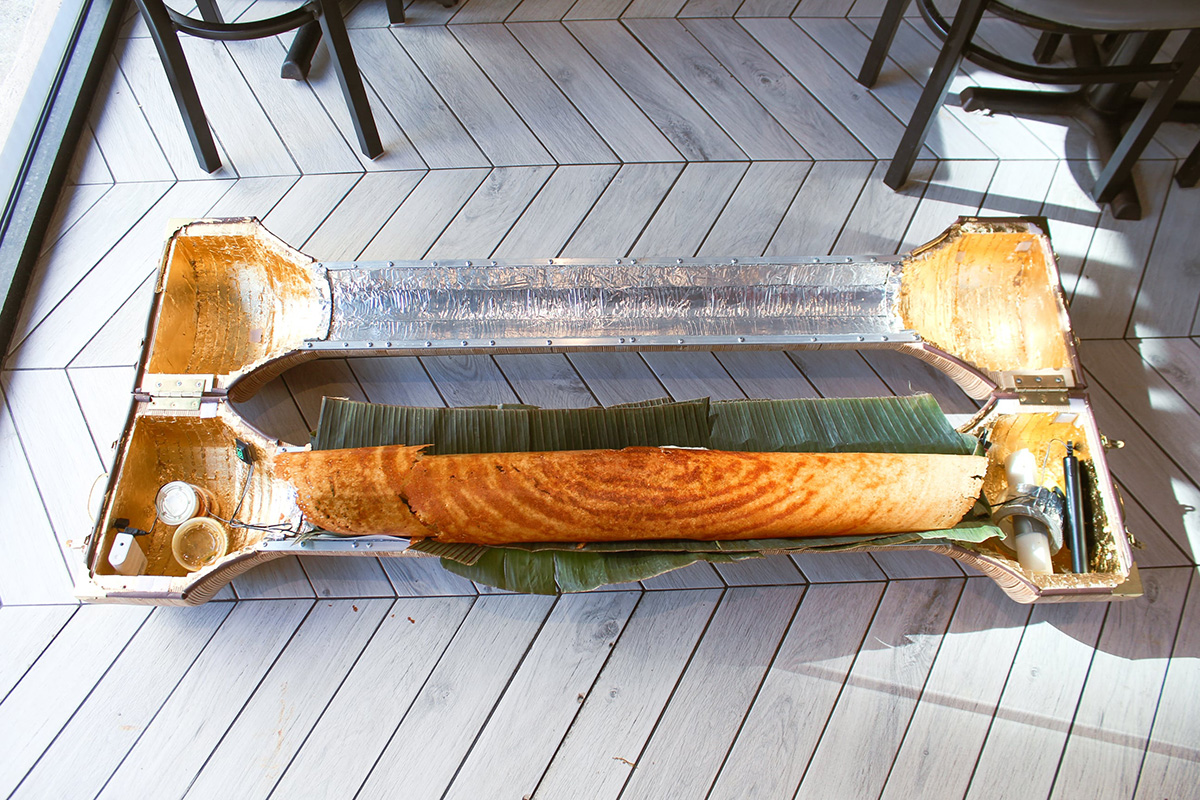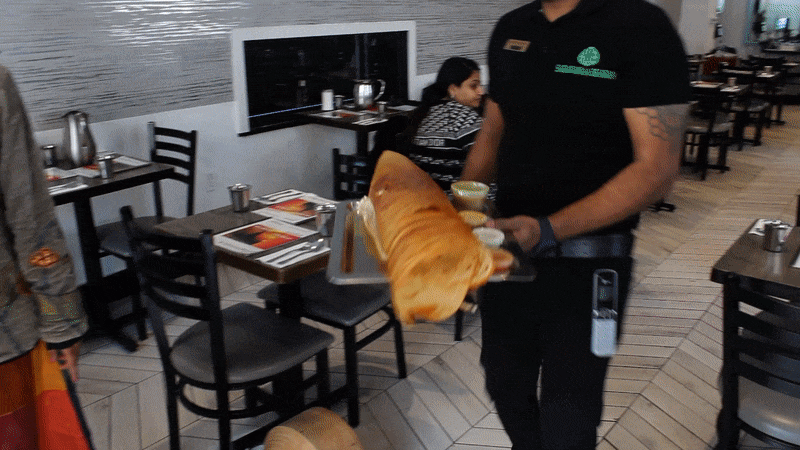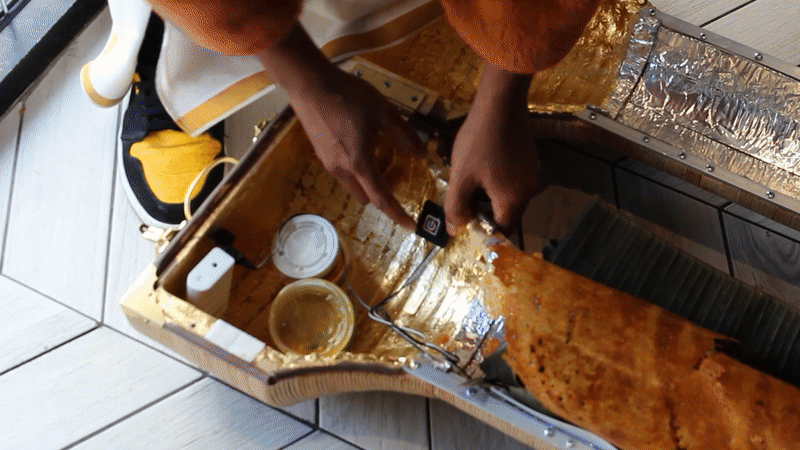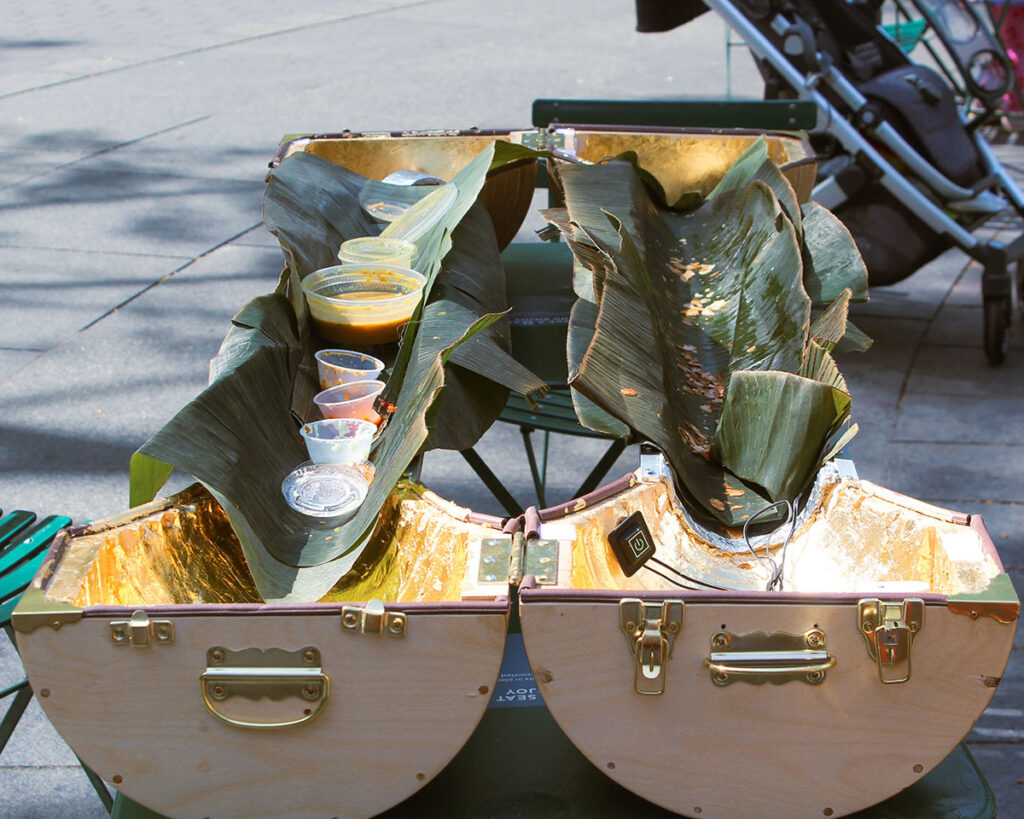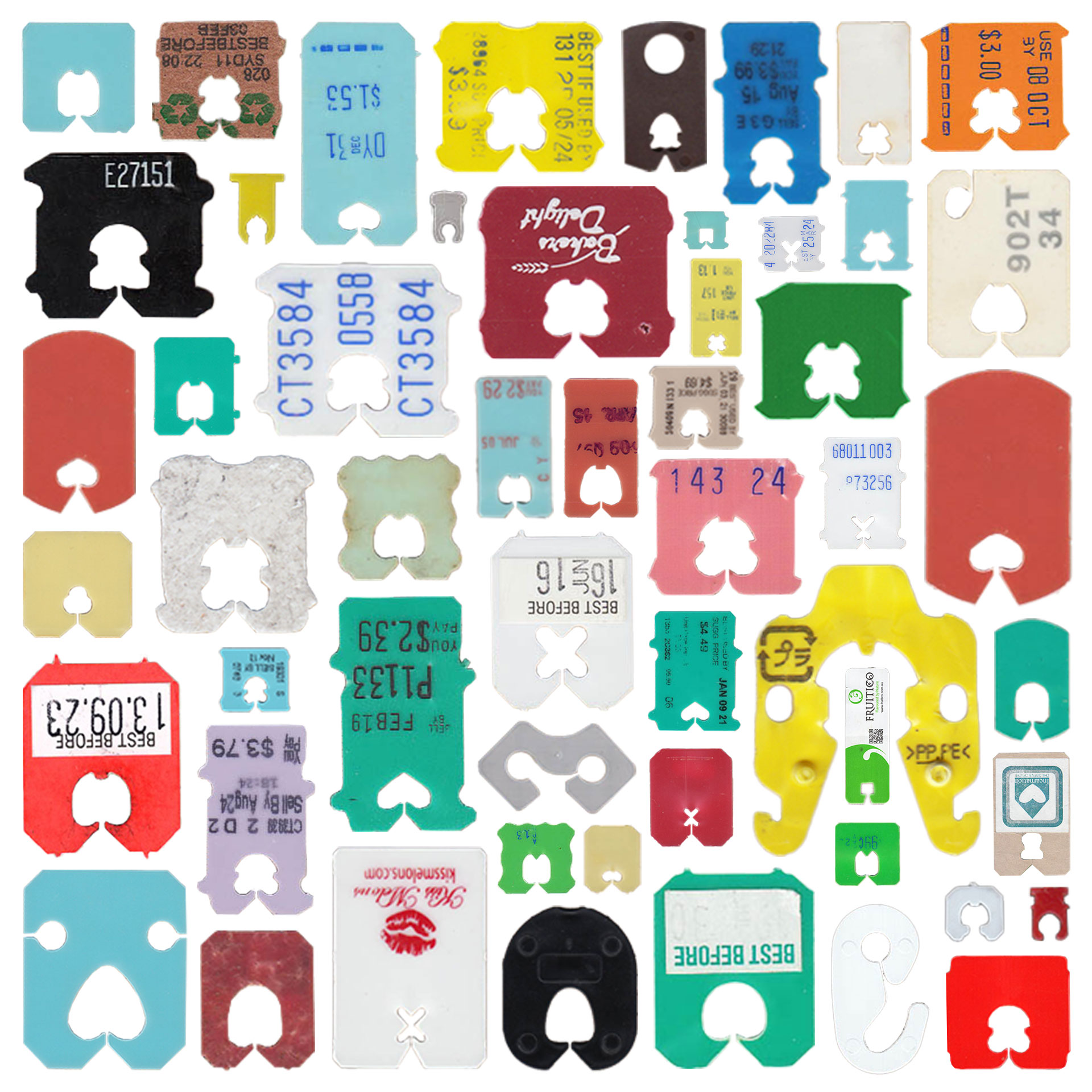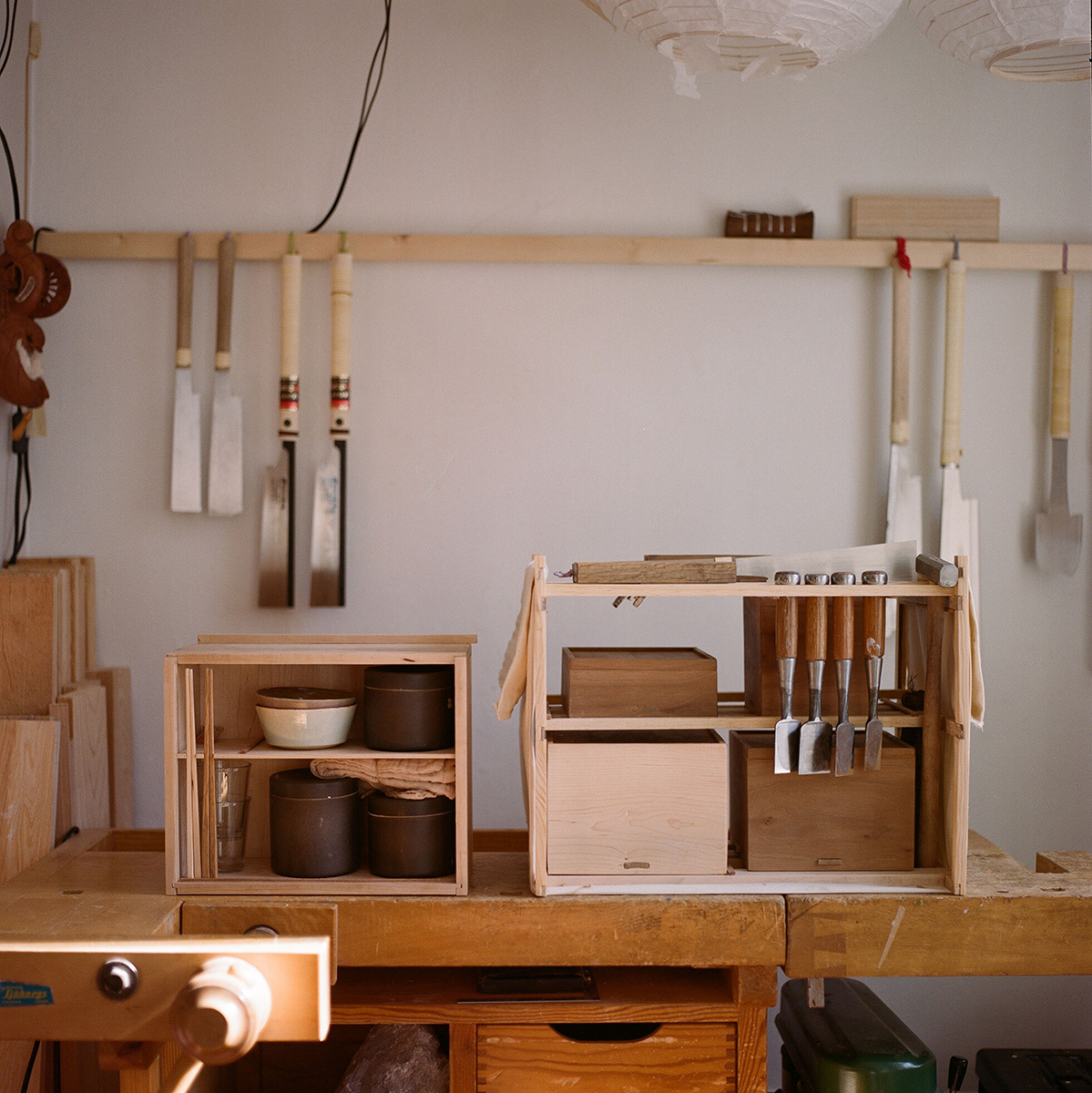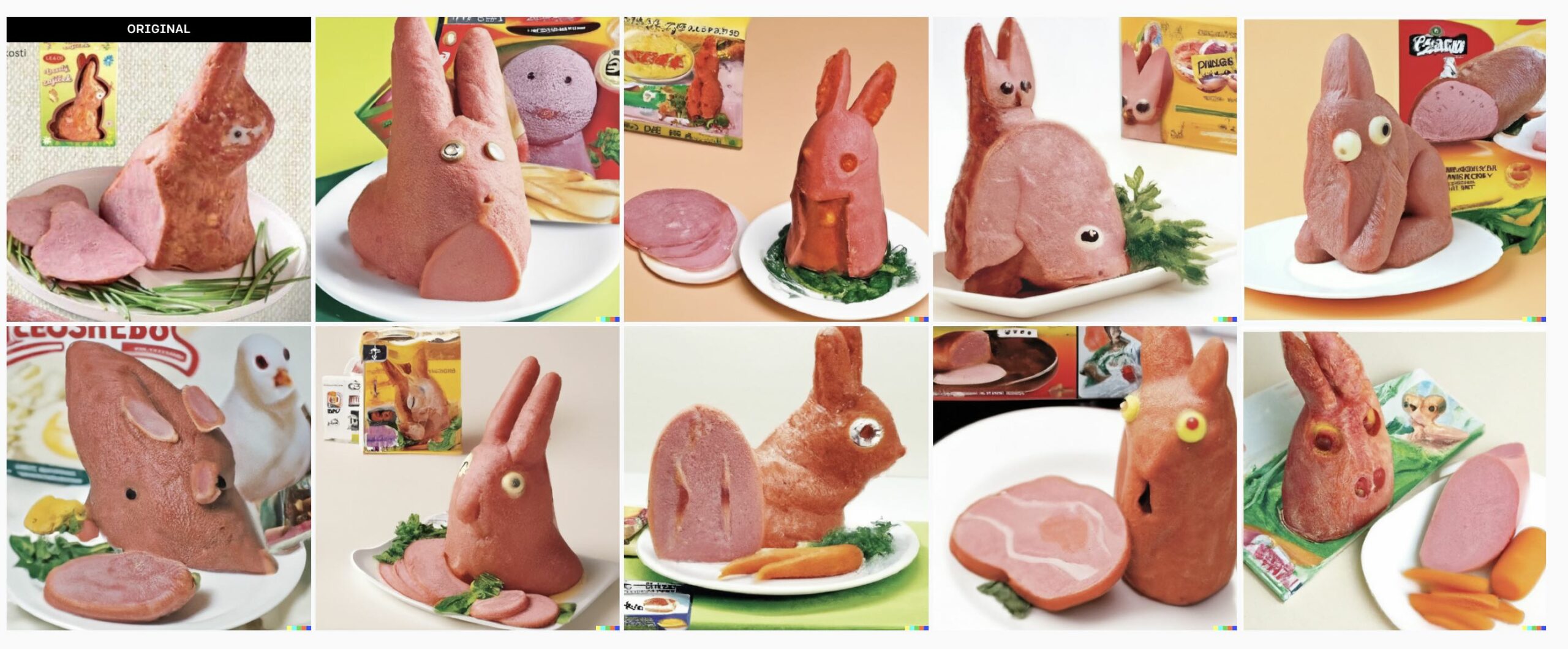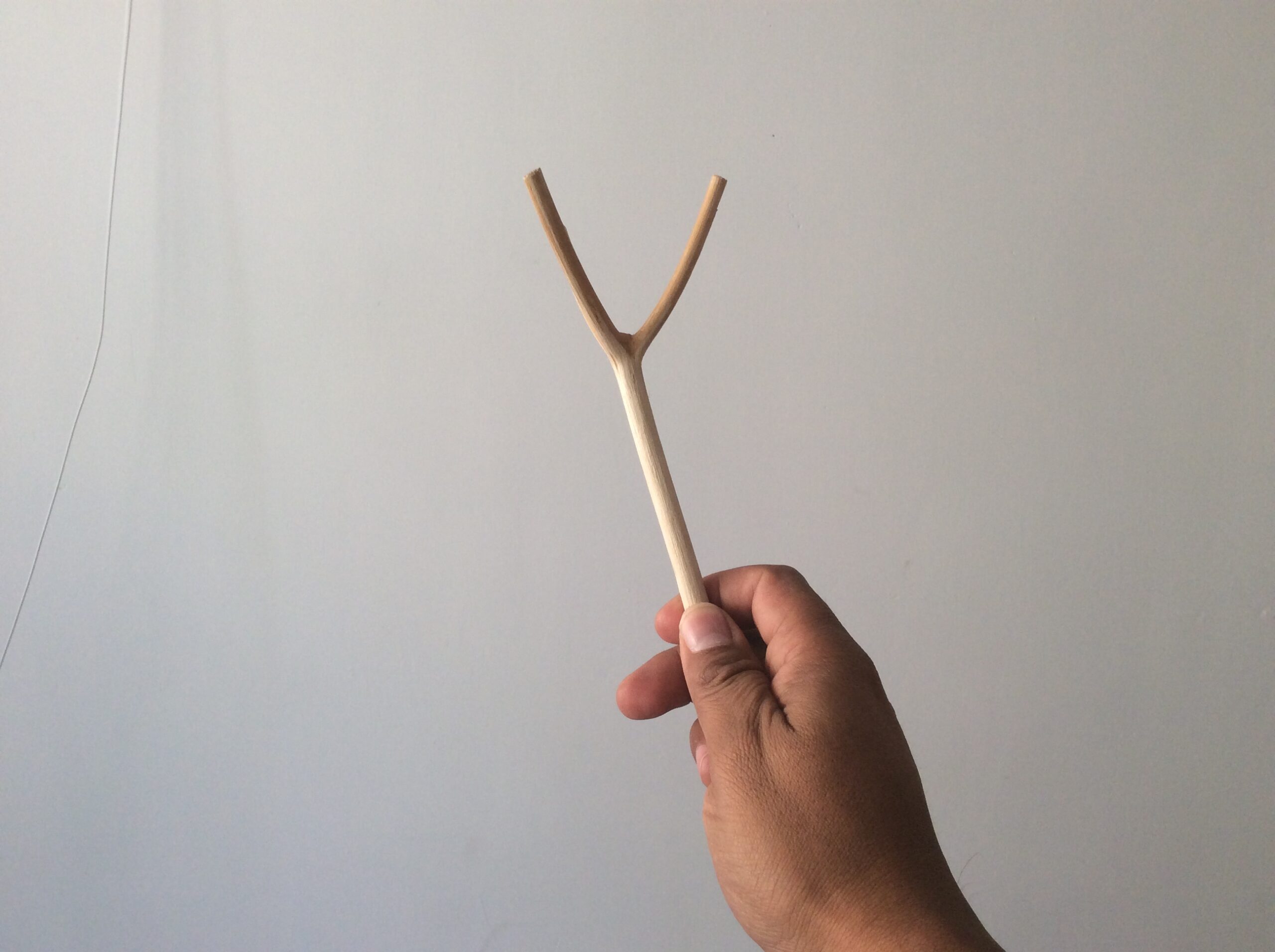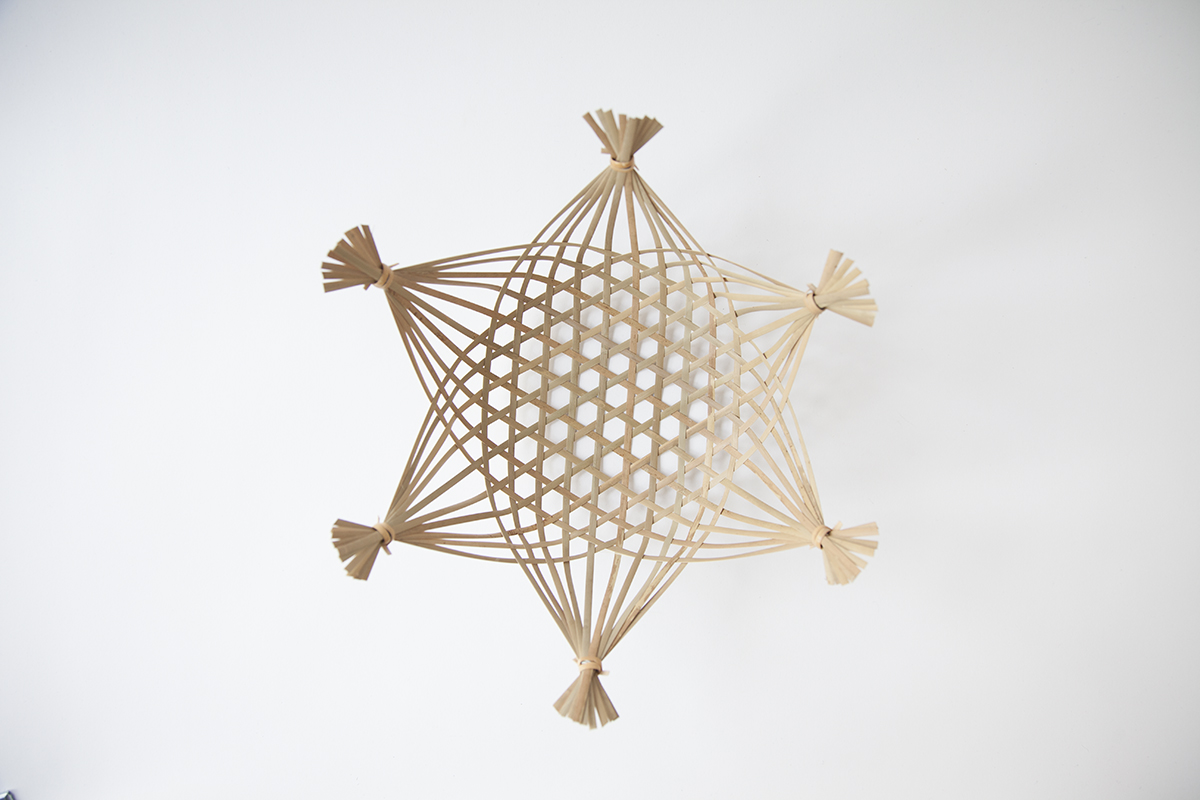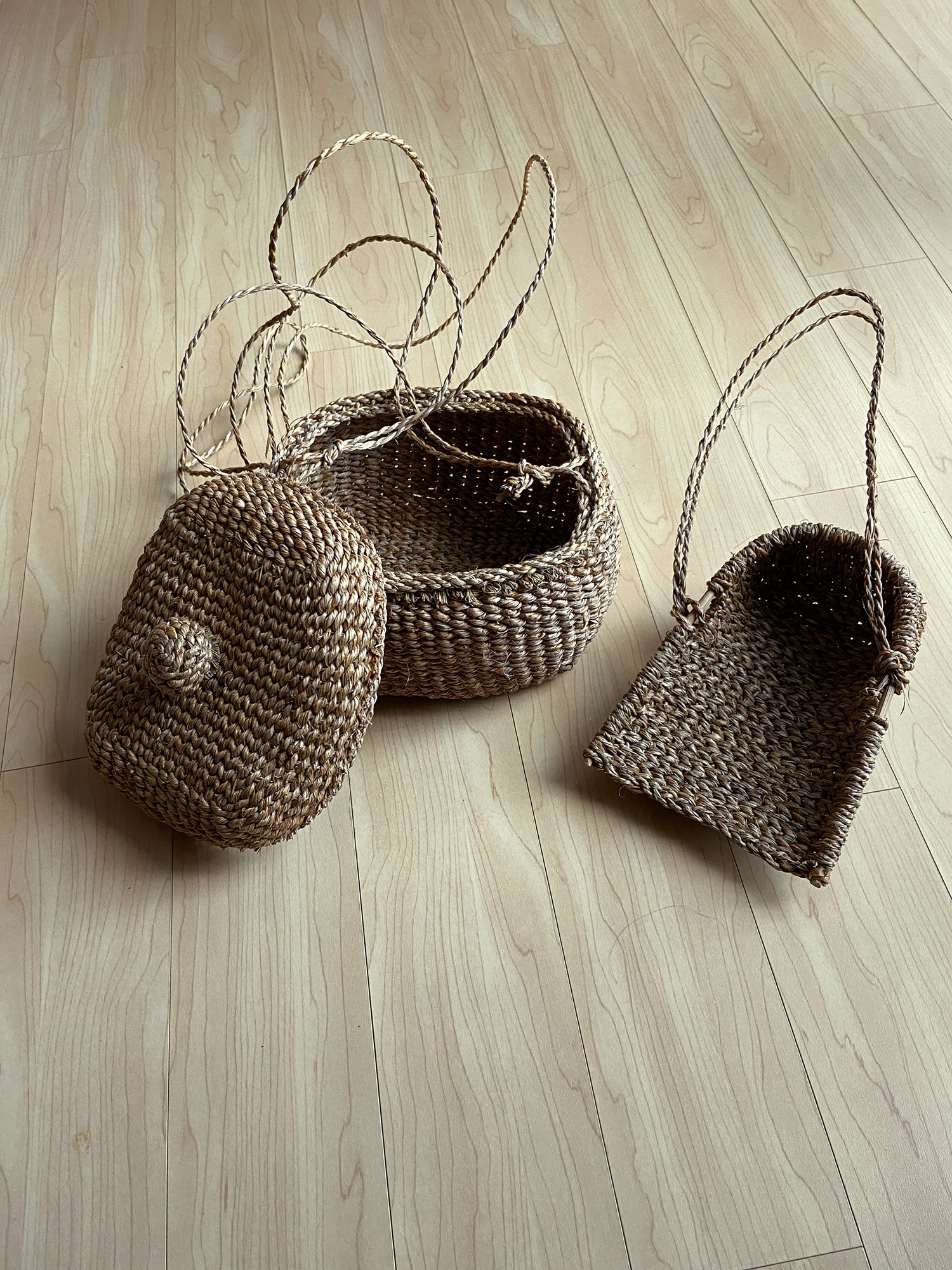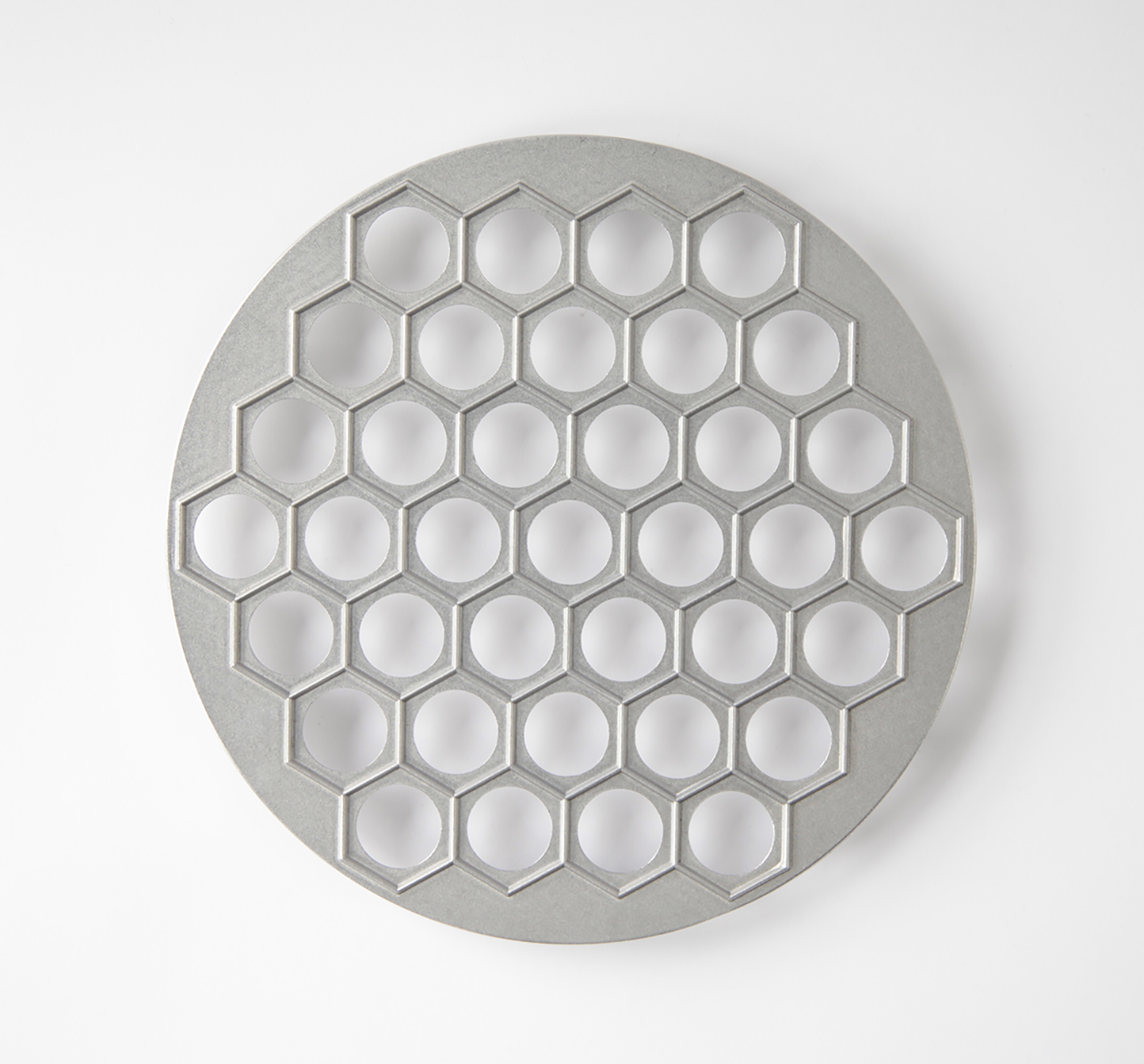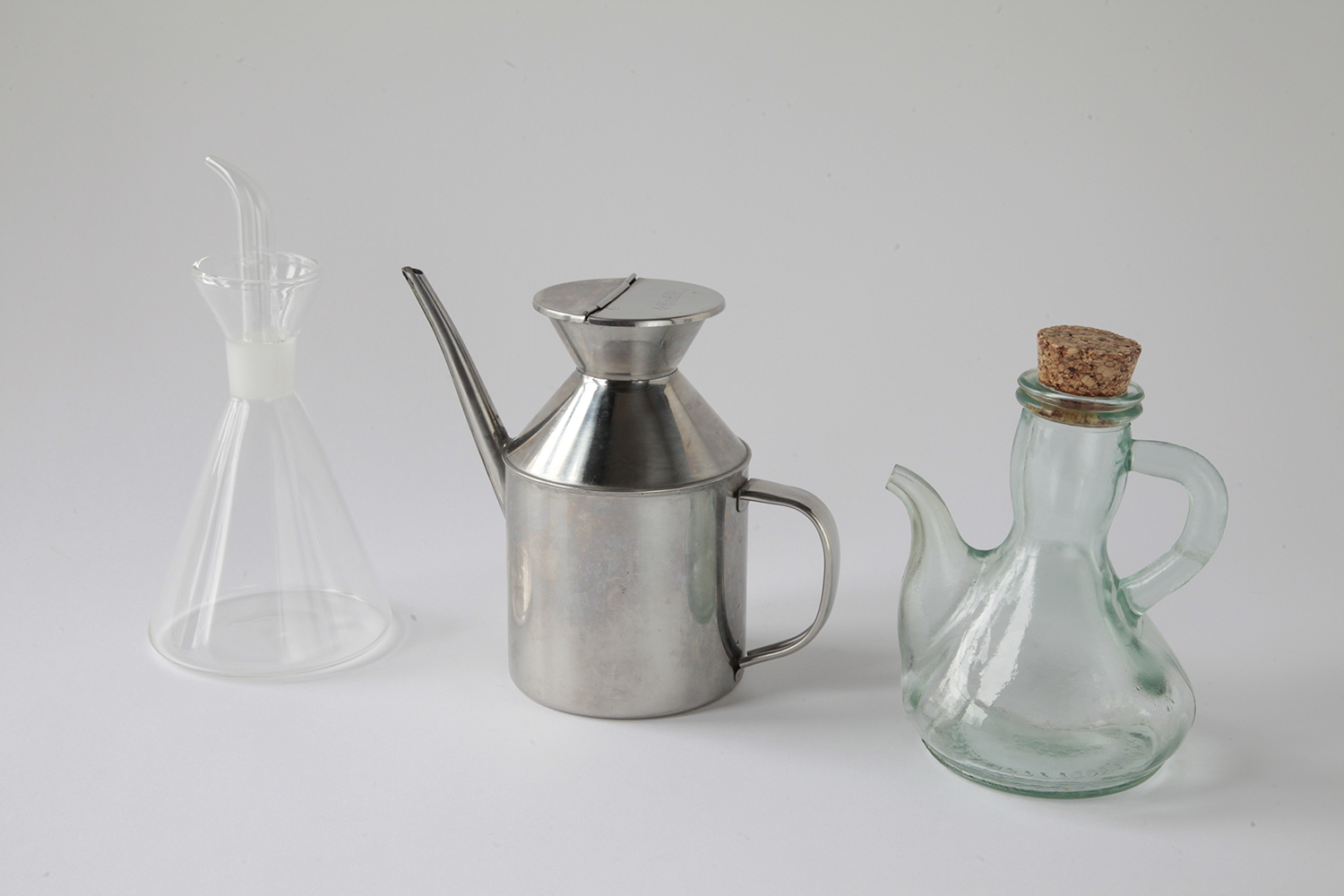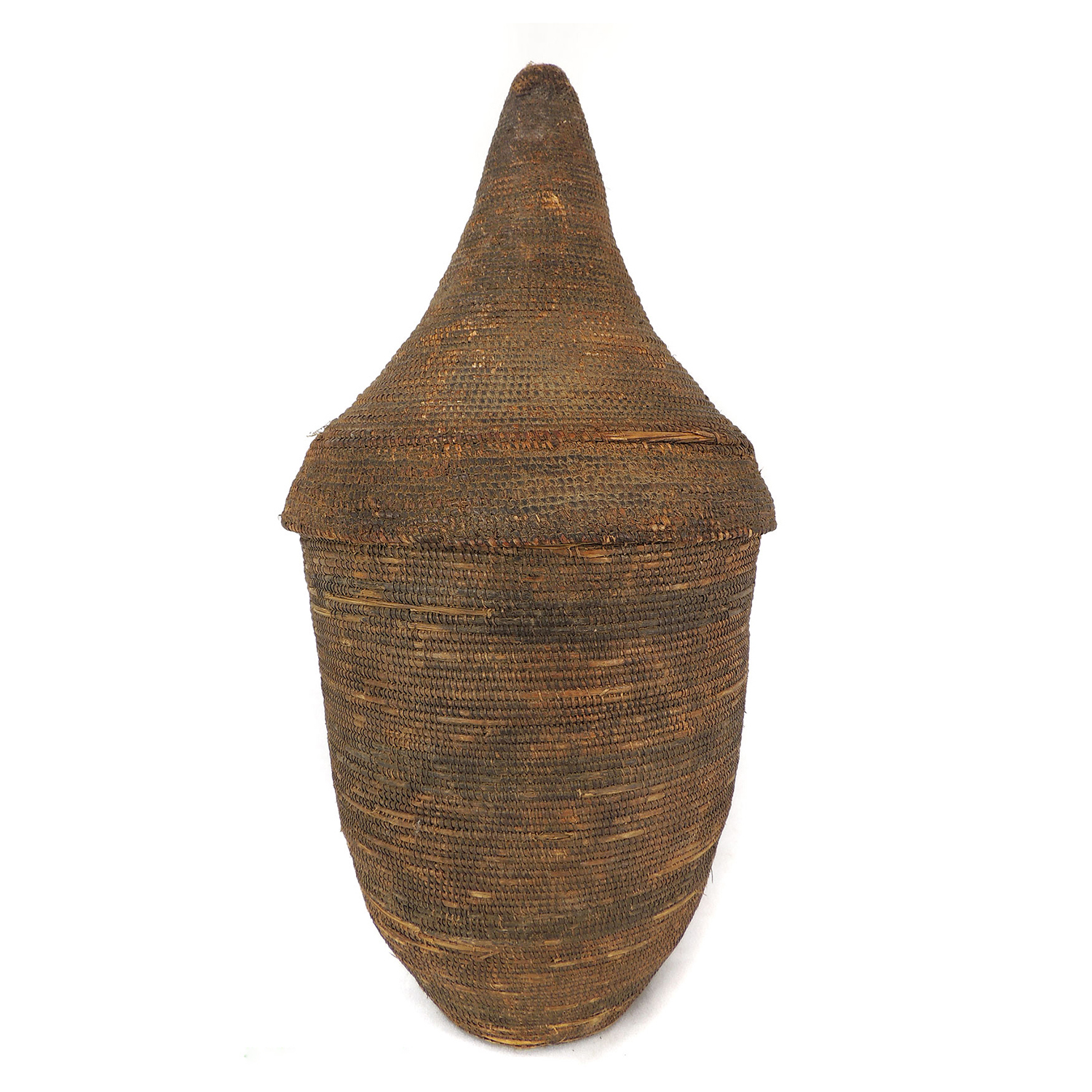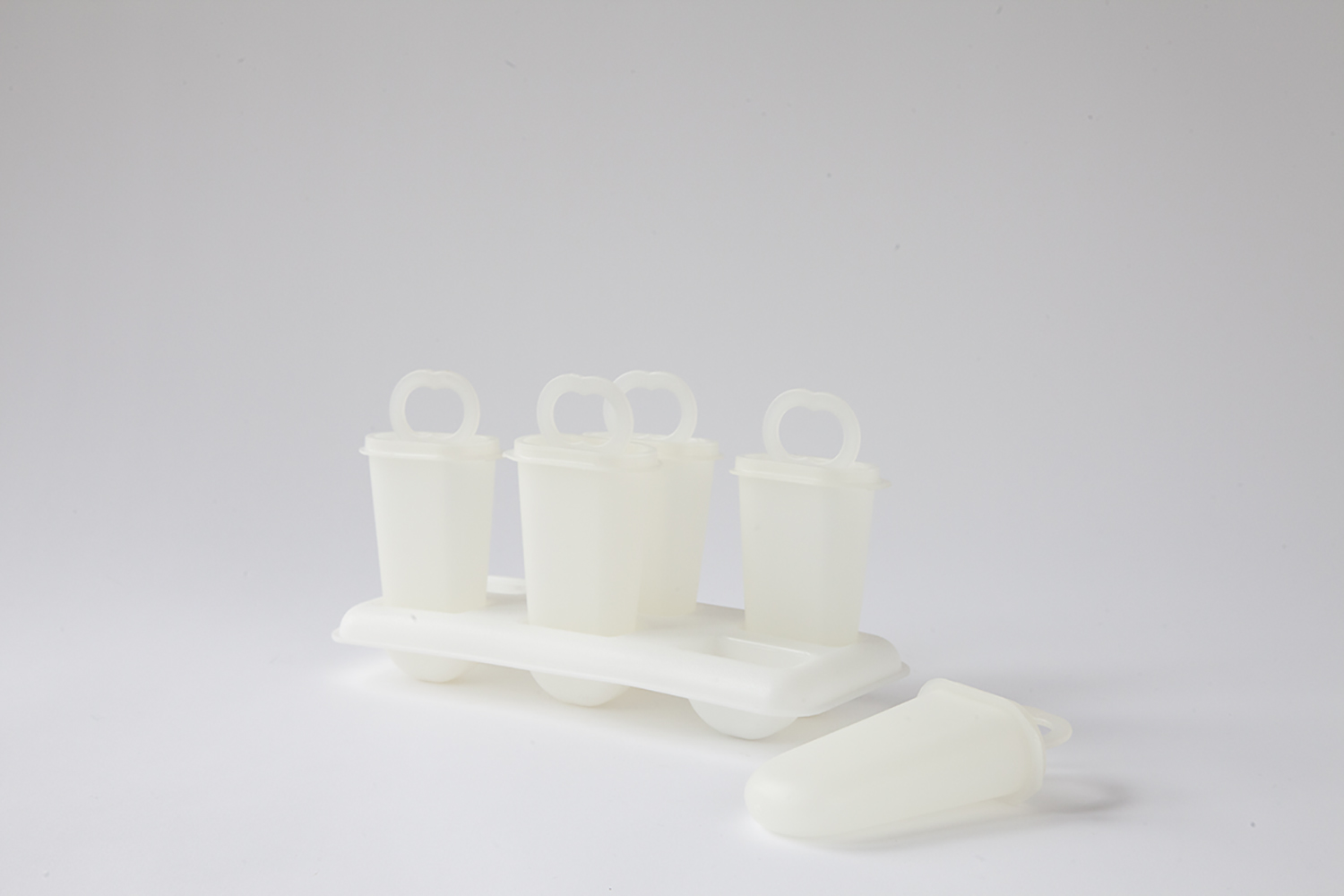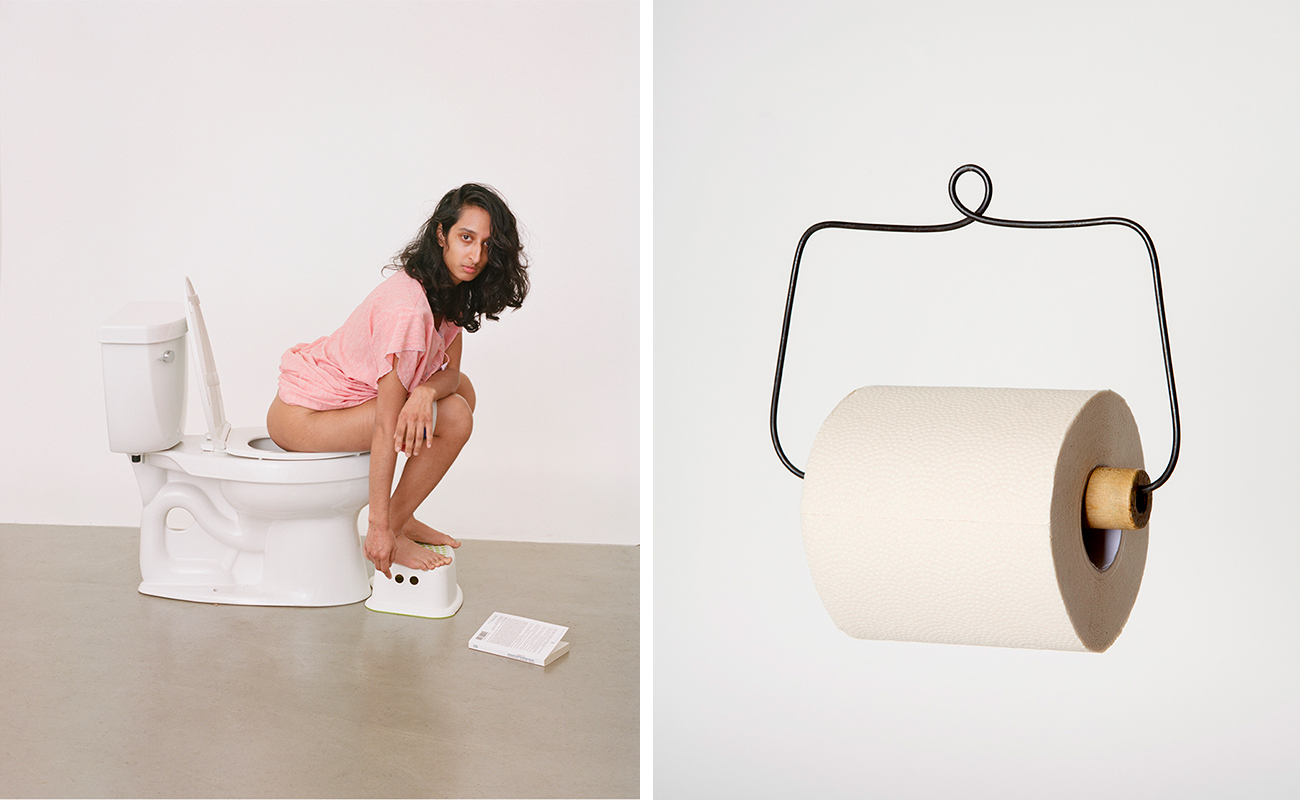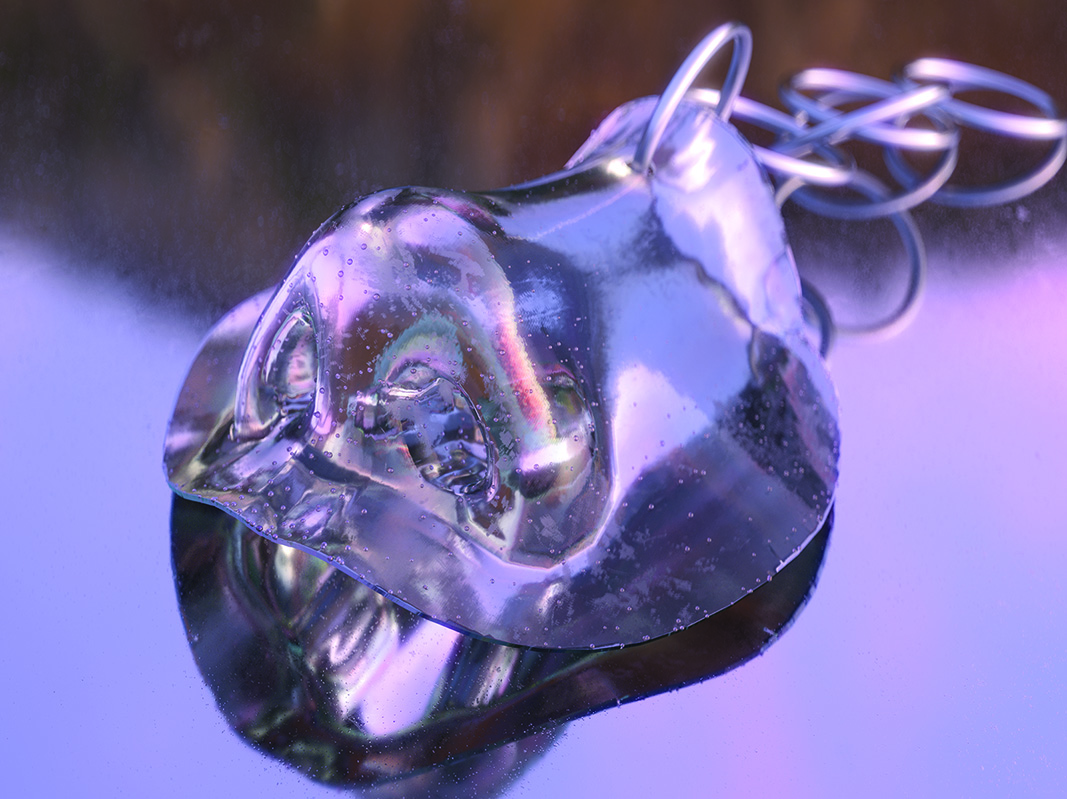The Dosa, a traditional Indian dish beloved for its delicate and crispy texture, is notoriously difficult to transport due to its fragility. This machine finally puts a long Dosa on the menu for an outdoor picnic. The wooden machine is specifically designed for a 32” long dosa. It is designed to be handled by 2 people, to be taken into restaurants and deliver orders for a dimensioned Dosa with care. The Dosa lives in a climate controlled compartment during transport. A layer of banana leaves is used inside the heated chamber to provide a hygienic and traditional eating surface. The bulged ends can store up to 3 liters of sambar and chutney. The machine opens up to a mini table to enjoy the 32” long dosa in the desired picnic location.
All images and text provided by Studio Kinky Kashayam
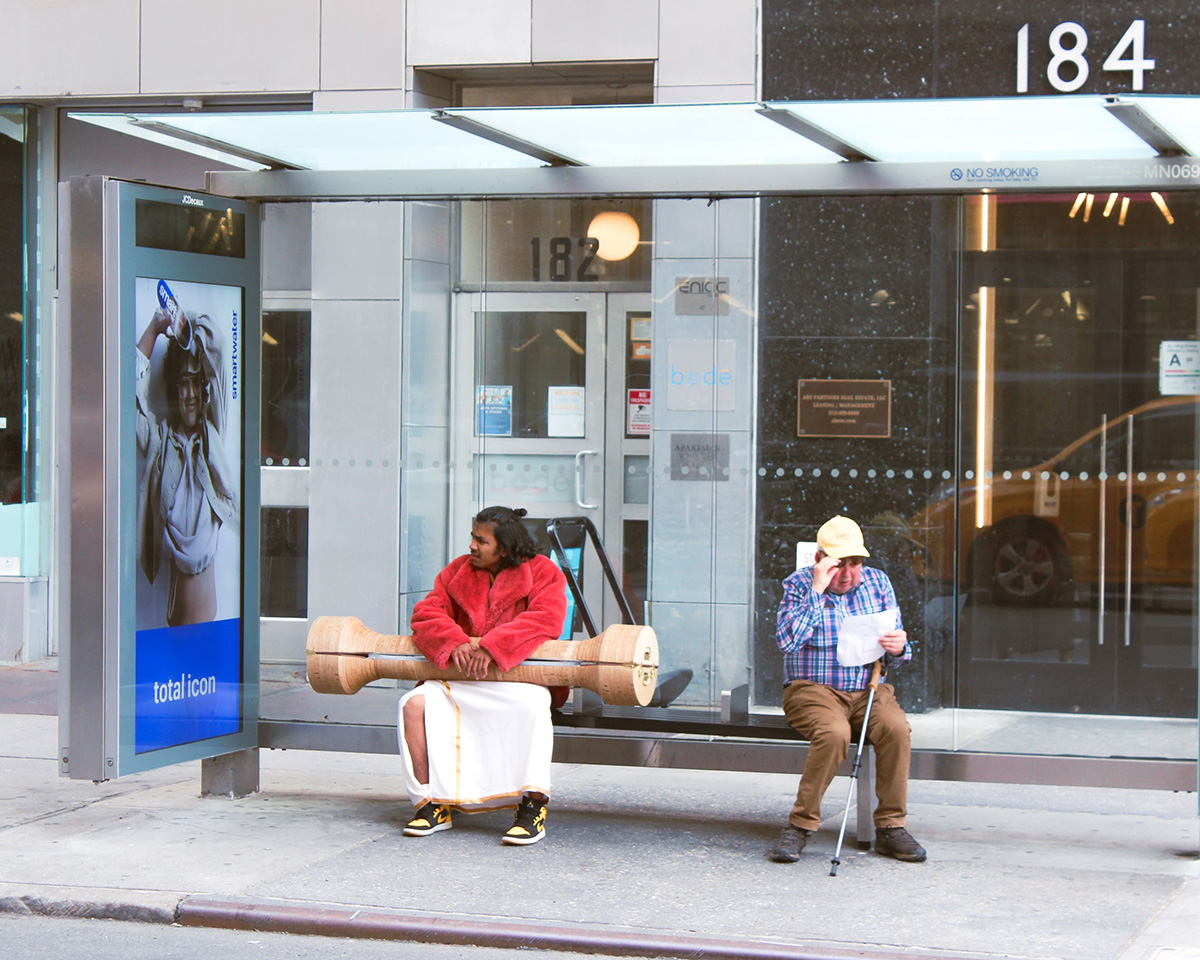
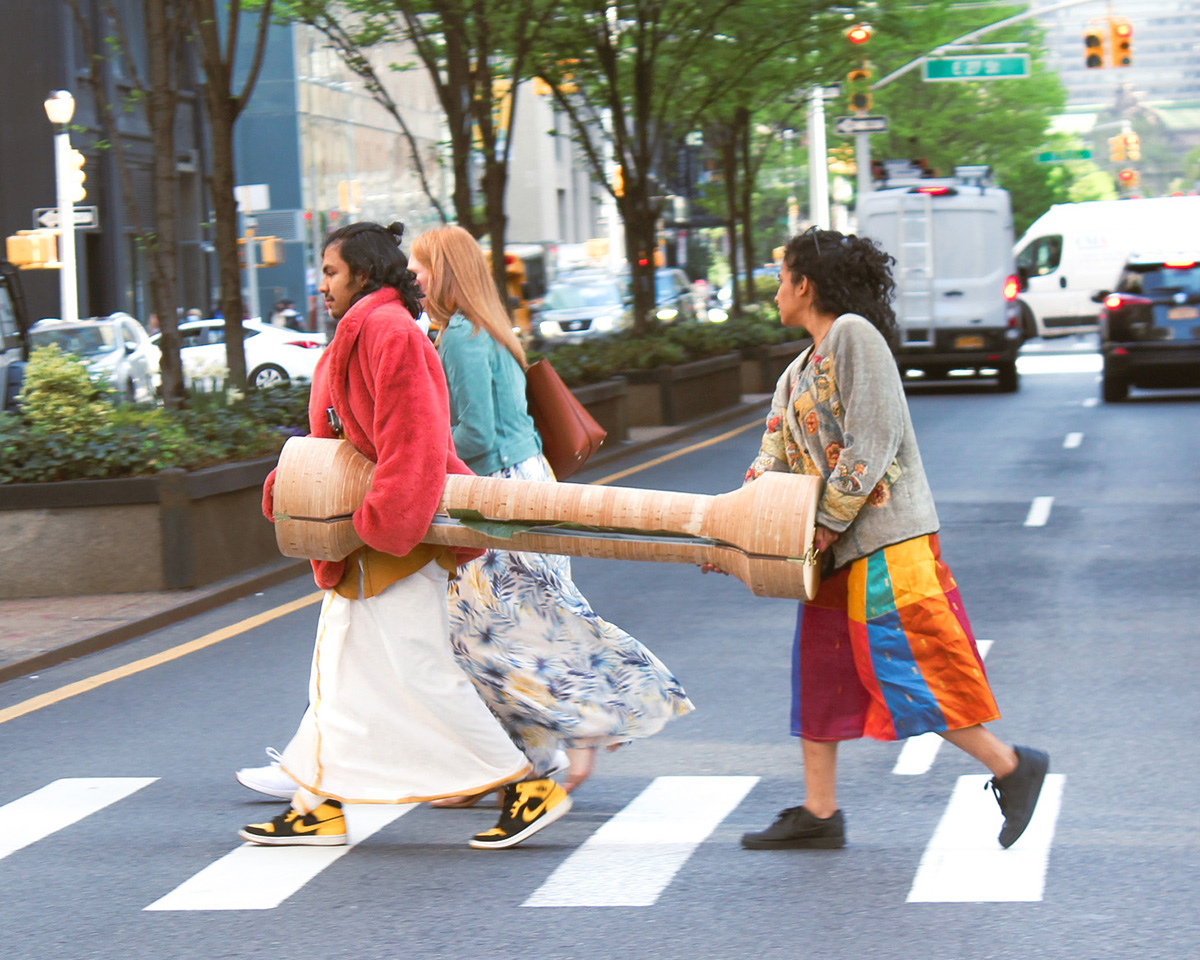
DESIGN PROCESS
In an ongoing series where we interrogate what industrial design would look like if it grew within and amongst the belief systems of the part of the world we are from, we delved into Southern-Asian culinary conventions using design and technology as a medium for questioning, choosing to speak the language of consumer electronics to ask those questions.
The Dosa Picnic Basket is a testament to our enthusiasm to initiate dialogues with generational orthodoxies, shedding new light on the role of design, and speculative and critical design from a non-Western perspective. Our thinking draws from our mixed identities, generational belief systems, and childhood artifacts. The studio borrows from the worlds of industrial design, engineering, manufacturing, critical thought, and world-building to celebrate ‘the machine’ as a medium for interrogation. At the heart of our experiments, is a harmonious blend of audacity and intellect. Celebrating the machine within the context of food futures and Neo-cultural traditions.
ABOUT THE PRACTICE
Studio Kinky Kashayam, founded by Shashwath Santosh and Nithin Eluvathingal, is focused on twisting the worlds of history, sciences, technology, socio-economics, critical fiction, and humor. They consider themselves researchers of human stories and their practice is based in New York and Toronto.
